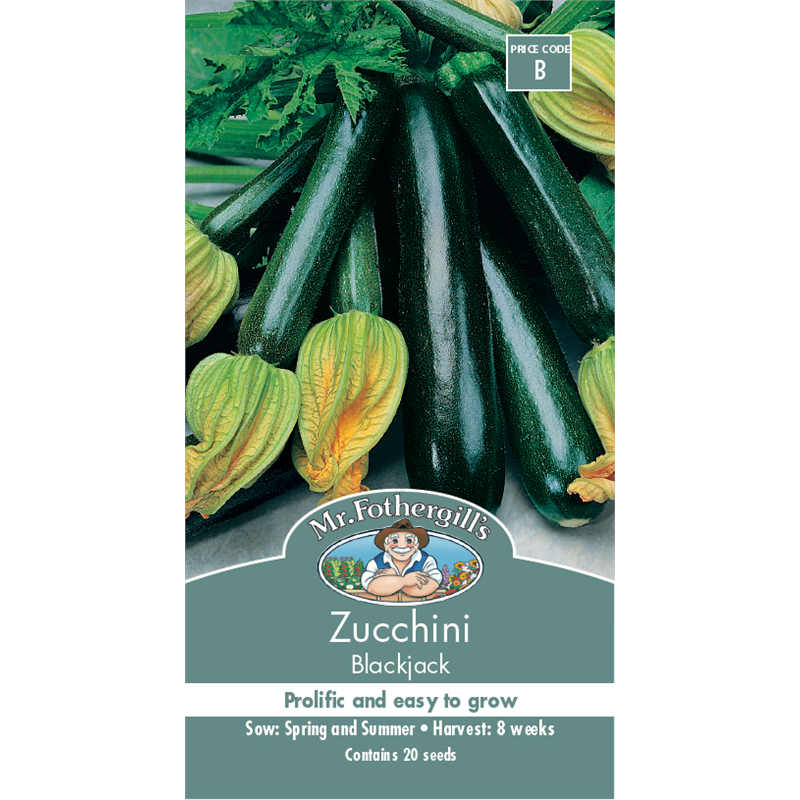When To Pick Blackjack Zucchini
Written by Shelley Frost; Updated December 15, 2018
Related Articles
We’re smack dab in the middle of summer, which means it’s prime zucchini season and they’re everywhere! Did you know this popular variety of summer squash can grown up to 2 inches in length every 24 hours? Bigger doesn’t mean better, though, so here are some pointers on how to pick the tastiest zucchini. Inexpensive zucchini is such a versatile summer vegetable: you can eat it raw. Depending upon the variety, golden zucchini will be ready to harvest in 35-55 days from planting. As with other zucchini varieties, plant golden zucchini in full sun in well-draining, nutrient rich soil. Prior to planting, work a few inches of compost or other organic matter into the soil. The home garden. Zucchini are one of the easiest plants to grow in the garden and with regular watering and fertiliser they will give you a bounty of summer vegetables that can be grilled, stuffed or used in stir fries. Materials and Tools Needed Zucchini Seed – Blackjack and Lebanese are popular varieties that produce well. Well Matured Manure.
- 1 Grow Vertical Squash in a Small Space
- 2 Can You Tie Cucumber Plants to Grow Up?
- 3 Stake Summer Squash
- 4 Make Zucchini Climb a Fence

The trailing nature of zucchini ( Cucurbita pepo) vines causes the vegetables to take over a large area of the garden. Besides limiting the amount of available space, the vines can take over other nearby plants if you don't leave enough space when planting. Growing the zucchini vertically conserves space and also keeps the plants healthy by encouraging circulation and sun exposure. Climbing zucchini is less susceptible to diseases and issues like mildew or rotting. Vine vegetables like zucchini take to a trellis easily with only a little work on your part.
Pound 6-foot tall metal stakes or wood posts into the ground at least 1 foot deep to provide a sturdy frame for the trellis. Drive a second stake no more than 6 feet away from the first to increase stability of the structure. Position the trellis so it won't block sunlight to other plants in the garden.
Nail, wire or staple chicken wire to the stakes. Add a nail, wire or staple every few inches to keep the chicken wire in place. Attach the chicken wire so it doesn't have any slack in it for better support of the zucchini.
Dig a hole for the zucchini plant a few inches in front of the trellis. Place the plant in the hole and bury the roots with soil like normal, being sure not to plant deeper than it was growing inside the container. Water the newly planted zucchini. Space additional zucchini plants at least 2 feet apart along the trellis, using the same spacing you would if the squash grew along the ground.
Attach the zucchini plant vines to the trellis once they are tall enough to reach it. Tie the vines loosely with strips of fabric to encourage them to grow up the structure. Avoid tying the vines tightly, as you might damage the plant or restrict its growth.
Tie the tops of the vines as they grow longer if needed. The zucchini will eventually grow up the trellis on its own, but you may need to tie the stems at first to encourage growth in the proper direction. Move the vine ends through and around the openings on the chicken wire every two or three days.
Untie the strips of fabric once the zucchini plant securely winds itself around the trellis. Allow the zucchini to grow along the trellis, caring for and harvesting the plant as you would if it grew on the ground. Inspect the plants a few times a week to ensure the zucchinis don't grow up against or into the chicken wire, causing a distorted shape.
Metal stakes or wood posts
Mallet
Chicken wire
Nails
Wire
Staples
Zucchini seeds or seedlings
Fabric strips
Things You Will Need
Tip
Depending on the cultivar, zucchini is typically ready to harvest anywhere from 40 to 50 days after planting.

References (3)
About the Author
When To Pick Zucchini Flowers
Based in the Midwest, Shelley Frost has been writing parenting and education articles since 2007. Her experience comes from teaching, tutoring and managing educational after school programs. Frost worked in insurance and software testing before becoming a writer. She holds a Bachelor of Arts in elementary education with a reading endorsement.
Cite this Article